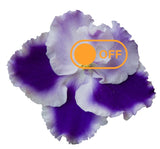The Mechanics of Smell: Why What You Smell May Not Be What I Smell….

Have you ever wandered around a supermarket, or just been dozing in a sunny park, when a fellow human passed by, leaving an astonishing scent-trail? A frying-pan in the face moment for you - yet they seem blissfully unaware of whatever just assaulted your nose. And has this led to you wondering what exactly is going on up your nose and not happening in the nose of the perfume-wearer? There are several factors invisibly at play. It could be your smell-perception, (aka olfaction) how your particular bundle of olfactory receptors react to smell and how that differs from those around you. Then there’s your Cross-Modal Interactions to consider-it matters what you were thinking, looking at and listening to when it hit. The perfume’s intensity will have an effect on your Odour Threshold and if your nose has encountered it before, did it leave an Olfactory Pathway? And if it did, was your limbic system particularly active at the time? Because, of course, that will have influenced your Odour Hedonics….
We have Linda Buck and Richard Axel to thank for discovering these receptors, not as you might think, in 1860 or even 1920, but 1991! Until the mid 1990s we really didn’t understand this smell stuff much at all. They were duly awarded the Nobel Prize in “Physiology or Medicine” for their three year quest up the human nose, which has given us a much clearer idea of what happens when a little volatile molecule wanders up a nostril.
It turns out that the olfactory receptors are actually little proteins that sit on the surface of your olfactory receptor neurones. They spot different scent molecules in the air we breathe and then they ping off a message to the brain containing this information. Once there, it is gradually unscrambled, revealing how that last waft differs from the one before. The receptors are technically part of the brain, and sit snuggled up next to the limbic system, which stores, sorts and replays our memories and emotions. So one seemingly innocent molecule can either transport you back to a nasty run-in with cough medicine or a heavenly day, sprawled out in the shade of a cherry tree. This connection is known as the "Olfactory Pathway,” because scientists are good at finding things, but not so interested in thinking up poetic terms for the things that they find.
 So every sniff is potentially an emotional roller-coaster; depending on your life so far. The smell of freshly brewed coffee could transport you to a romantic Parisian cafe…. or to the day your kitchen burned down. Having said that, there are some smells with more of a tendency than others to cause a relaxed or an alert state in most people. This isn’t coming from a perky limbic system, but the much more business-like prefrontal cortex - an area of the brain usually busy with decision-making and cognitive performance - fun stuff like that. Whilst we know that’s where it happens, and sort of how it happens, there’s still no way of predicting who might get a shot of alertness with their rosemary smoothie… there may be another Nobel Prize, just waiting for someone to take apart the Prefrontal Cortex and examine its ‘Smelly Things’ filing system.
So every sniff is potentially an emotional roller-coaster; depending on your life so far. The smell of freshly brewed coffee could transport you to a romantic Parisian cafe…. or to the day your kitchen burned down. Having said that, there are some smells with more of a tendency than others to cause a relaxed or an alert state in most people. This isn’t coming from a perky limbic system, but the much more business-like prefrontal cortex - an area of the brain usually busy with decision-making and cognitive performance - fun stuff like that. Whilst we know that’s where it happens, and sort of how it happens, there’s still no way of predicting who might get a shot of alertness with their rosemary smoothie… there may be another Nobel Prize, just waiting for someone to take apart the Prefrontal Cortex and examine its ‘Smelly Things’ filing system.
Back to the frying pan in the face moment in the park - you’ve just been engulfed in an eye-watering haze, so what is the wearer smelling? Probably not much, at least not much of the smell molecule group that just assaulted you. There are several contributing factors probably having an effect…
We all vary in our ‘Threshold Sensitivity’, simply how much of a smell do you need before you can detect it? You may have a very low threshold and so you can smell most odours at a low concentration. But even if that is so, there will probably be anomalies in there, and you could be missing some altogether. As you age, or rather, as you become aged…it’s all a bit downhill: the necessary concentration of an odour required increases. Identifying it become more difficult too, and distinguishing one from another becomes muddled….unless you practise! Unlike most body parts, a well-used, daily exercised, olfactory system of 80, can result in more reliable olfactory information than a youthful, but under-challenged, group of receptors.
Then there is ‘Odour Intensity’ to consider. Some people can spot most odours the moment they’re airborne, but this ability varies between individuals of any age. A gentle dab to one person can seem like drowning in a lake of Eau de Yuck to another. And the molecules themselves are not all made equal, as far as your olfactory receptors are concerned. Some hefty molecules may seamlessly float up and into your amygdala, barely raising a response from the odour check-points en route. Whilst a slip of a thing can set off all the trip-switches the moment it appears. The person jogging behind the Wafter in the park, could own a nose that misses both molecules altogether, whilst a third one floors them. And that same molecule is being waved through by your olfactory police, leaving you peacefully watching the sky, wondering if it’s worth taking out your phone for a dinosaur-shaped cloud.
Even if you and the perfume wearer were to agree on what you smell, there is still Odour Hedonics to throw confusion into the air… What might be ‘Snuggle Heaven’ to one could be ‘Cold Raindrops down the Spine’ to another - (same as why your dog just seems prettier than all the other dogs….to you). Odour Hedonics can be innate - you’ve always reacted that way, or learned, through experience, and is a hugely important factor in individual perception of a smell.
 Then there’s a quirky little detail to consider - the Switchy-off-and-on Sensation, as I think it should be called - you may prefer the formal: Sensory Adaptation. This happens when you’ve been wearing a scent all day, your nose is bored, bored, bored, and noses bore easily. It likes new and exciting and when it doesn’t get that, it loses interest. Whereas someone whose nose has become dulled to the pickled herring they’ve been bottling all morning, will be knocked sideways at a waft of shower fresh skin.
Then there’s a quirky little detail to consider - the Switchy-off-and-on Sensation, as I think it should be called - you may prefer the formal: Sensory Adaptation. This happens when you’ve been wearing a scent all day, your nose is bored, bored, bored, and noses bore easily. It likes new and exciting and when it doesn’t get that, it loses interest. Whereas someone whose nose has become dulled to the pickled herring they’ve been bottling all morning, will be knocked sideways at a waft of shower fresh skin.
But the spooky bit is that some molecules can fool your nose into thinking they’ve gone, when they’re still right there. The methyl ionones are a well-known example of these impish volatile molecules. So, you sniff it, you get a violet scent, file that, trigger the relevant scent memories and continue your day. Except, 30 seconds later, you can sniff every inch of your wrist, scarf and hair and get nothing - just air. You continue on you way, planning to return this very short-lived scent to the scent shop, when ‘Hello!’ It’s all about violets again, for about thirty seconds…..and then it’s gone again. This can liven up a dull day in the perfume-making lab. It isn’t the only odour pixie out there, Galaxolide, for instance, is a mildish, sweetish, muskish sort of scent, in lots and lots of perfumes, but almost half the world are missing it’s olfactory delights entirely - because we don’t all have identical olfactory receptors, so for some, there’s nothing there to receive it.
 As Berkeley might have asked….if a tree fall in a forest and there’s no-one there with the right olfactory bulb to sniff it, does it have a smell?…).
As Berkeley might have asked….if a tree fall in a forest and there’s no-one there with the right olfactory bulb to sniff it, does it have a smell?…).
Certain genes are associated with specific receptors, so if your mother spots it, there’s a better chance you will too, but not necessarily…..
Whilst that fascinating conundrum circulates, it’s time for the really special-interest-nugget called the ‘Cross-Modal Interactions’! Which just means that your perception of an odour also depends on what you are looking at when you smell the smell, and what you are listening to and whether you’re happy or sad, hot or cold…..etc. It also changes when that limbic system of yours is in the driving seat too. Prolonged anxiety and depression can lead to hyposmia and even anosmia (no smell) although the latter is more likely to happen after a very nasty thwack on the receptors.
So, there’s your answer - we’re using different olfactory equipment, yours could be a younger model, I could be anxious, you might be cold, I might have strange associations with the scent of violet, which come and go, and I may have spent my day pickling fish whilst my nose is yearning for open pastures. All of which could lead to you loving a perfume that makes you think of long summer days, but just makes me think of wet dogs.